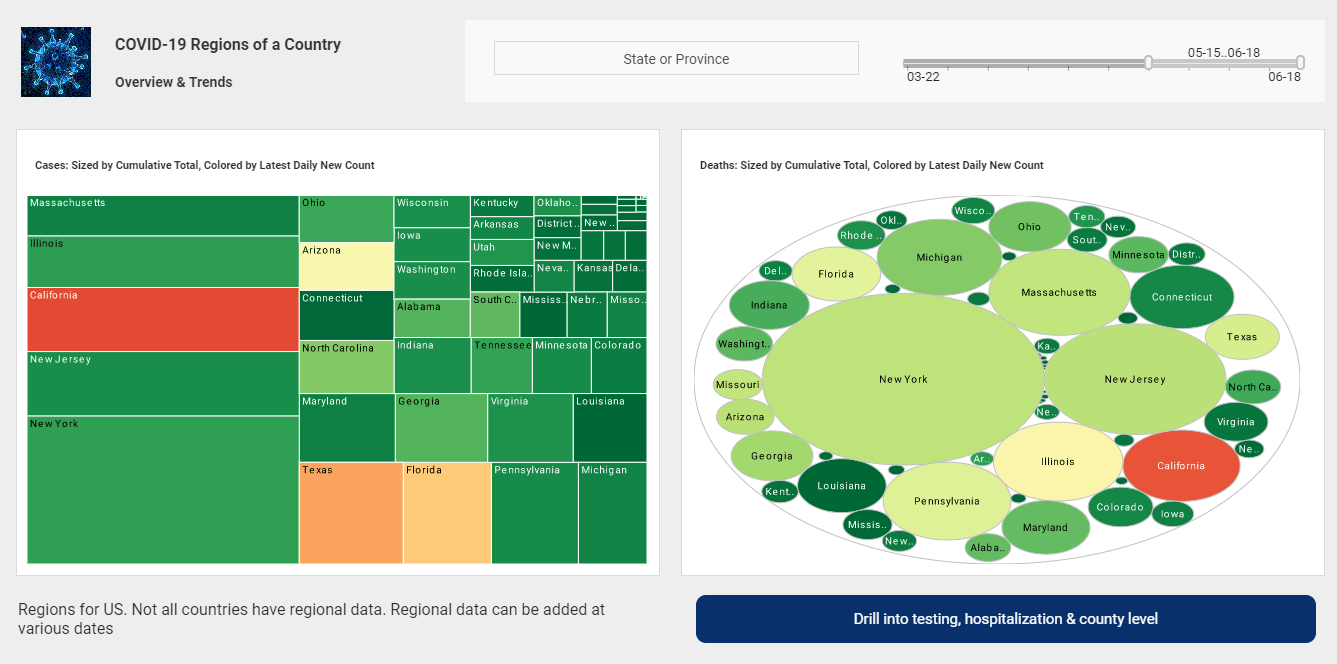MySQL's Advantages and Disadvantages for Analytical Reporting
Can MySQL be used for data analytics and reporting? Thousands of installations, configuration, and optimization manuals and courses for MySQL are available online. None of these articles, however, ever pause to consider if MySQL is the best option for business intelligence.
The apparent qualification being that the scope, schedule, and budget of each project vary. By listing some of its features, this article will try to address the topic of how Oracle's MySQL fits into the world of analytics. This essay will not tell you if MySQL is excellent or bad, but rather whether it could be a suitable choice for a BI project.
| #1 Ranking: Read how InetSoft was rated #1 for user adoption in G2's user survey-based index | Read More |
Recognizing the Conditions
Data Types
What kind of data are you looking at? In order to handle relational data, MySQL was created. Don't even think about using MySQL if you have a lot of qualitative data, such as social media postings, photos, or text. There are NoSQL systems, such as MongoDB, that are far more suited for this role, despite the fact that MySQL has made efforts to better manage these sorts of data. This is particularly true if you want to use the data to conduct analytical queries.
Quantity of Data Set
How much data must you manage? One of MySQL's primary limitations, according to many, is speed decrease when handling data sets with more than 1,000,000 rows. However, a little further investigation often finds that this is caused by poor table design, insufficient hardware, or inefficient searches and indexing. MySQL may be utilized well for extremely big data sets, as shown by the adoption of the database by companies like Facebook. Consequently, if your project will manage data sets larger than 500GB, think about spending the effort to correctly setup it to handle data at scale.
Using Business Intelligence (BI) tools for MySQL reporting to reduce the burden on the database itself is another technique to get around MySQL's size restrictions. These technologies progressively read the required data from your database before transforming, processing, and storing it on their servers.
Speaking of size, imagine how your company will expand a few years from now. Is it probable that you will soon be working with enormous or very massive data sets? If so, make plans to configure your data architecture specifically to handle your expansion.
Freshness of Information
Data freshness is a crucial idea to comprehend before putting your analytics into practice. Or, how often should your data warehouse and data marts be updated? Do you need it now, or will an overnight update do? Although MySQL can manage practically any refresh rate you choose to utilize, your data warehouse design and hardware setup will need to be adjusted to meet your objectives.
The hardware requirements for a MySQL system are often disregarded when its performance is subpar. Due to this, MySQL is sometimes criticized for operating poorly or slowly on huge datasets even though MySQL is not at fault. Make a plan for your setup and ensure that it has the resources it needs to function well. When deploying BI tools, take this in mind as well. The more often you update your database, the more strain you are placing on it in terms of maintaining data freshness.
Speed and accessibility
When your teams of analysts are mining, analyzing, and reporting on your data, how strict will your standards be? How many people will be querying the data set at once? Do you have to evaluate all of your data, or can you only use some of it? In the analytics field, we often gather much more data than is required for any one study. As a consequence, we can properly model our data warehouse and data marts to reduce the amount of the final data set that we actually deal with, resulting in a significant increase in the speed at which results are provided.
 |
Learn about the top 10 features of embedded business intelligence. |
Specific MySQL Considerations
To further understand how MySQL fits into your strategy, let's examine a couple of its most important features.
Possibilities and functionality
When it comes to selecting a database management system (DBMS), there are several options available, and each has advantages. However, MySQL is one of the most widely used database alternatives for many applications owing to its cheap cost (free for the Community Edition), big support community, and versatility. Due to this popularity and the rapidly growing field of data analytics, many MySQL users have requested that the capabilities of the database stay up or else risk losing favor with programmers. As a result, many of the flaws that previously restricted MySQL have been fixed in more recent iterations of the DBMS.
Analyzing Commercial Data
Running the actual analysis on your data might take a long time, depending on the storage engine you choose during setup and other considerations. One of the finest things you can do in this case is to add a specific BI layer. It allows you to execute the analysis entirely independently by separating the data being studied from the data in your transactional database. But once again, each BI tool has advantages and disadvantages. To choose the ones that will work best for your project, be sure to compare them.
Utilizing a processing engine (like Apache Spark) to handle the labor-intensive tasks and dividing your data into smaller MySQL data marts scattered over different nodes is another option to avoid this. Then, rather of storing the whole set of data in those data marts, save the analysis' findings there.
 |
Read the top 10 reasons for selecting InetSoft as your BI partner. |
Summary of Using MySQL as an Analytics Platform
Many analytics applications may benefit from using MySQL as a platform. It has numerous characteristics that make it the perfect database platform for putting analytics initiatives into practice. For mid-sized companies and entry-level start-ups just getting started with data analytics, it fits well right out of the box. Additionally, it may be scaled and refined to accommodate for bigger applications. The reason so many businesses have opted to utilize it and why it has gotten such broad support from a diverse community is precisely this.

